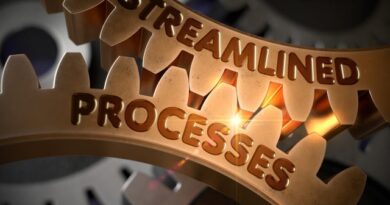What to Look for in a Desktop for a Small Business
Buying a business computer is very different from buying a laptop or desktop for personal use. Business desktops are more durable and built to last. They’re also designed to make servicing them easier, for the simple reason that the cost of a business computer being out of service can be much higher than a consumer PC.
Business desktops also come with dedicated tech support that makes troubleshooting tech issues faster and less expensive for the business. Finally, business PCs can have better rates, especially if you need to buy in bulk.
For these reasons, office desktops are a much better alternative if you’re running a small business, as compared to consumer PCs. Here are six things you need to keep in mind when you go hunting for a durable office PC.
Fast CPUs
The Central Processing Unit (CPU) is the brain of your Desktop for Small Business. Most modern office PCs use Intel Core i3 or i5 dual or quad-core processors. If you’re on a budget, you can look for PCs with Celeron or Pentium dual-core processors.
Ideally, this is an area worth spending a bit more on, especially since the more powerful processors are not just faster but also last longer. AMD’s Ryzen can also be an option. If your team needs to perform a lot of graphics work or other heavy-duty processing needing work, you can even opt for the higher Intel Core i7 and beyond.
Higher Memory
Office desktops need at least 8GB of Random Access Memory (RAM). For more intensive work such as graphic designing or game designing, you’ll need at least 16 GB RAM. In general, the higher the RAM, the faster and more efficient the machine.
Adequate Storage
Office PCs don’t usually have the same, high storage needs as a personal desktop. This is because office PCs are used for work alone, and not to sync with your phone or store your personal videos. More importantly, most office work is stored on common servers, and not on the desktop itself. Anywhere between 60-500 GB is a good amount of storage.
The lower end is more common if you only ever need to save documents. A solid state drive (SSD) launches programs faster than traditional hard drives. An average capacity SSD of about 256 GB should be enough for regular office needs.
Additional Features
For a business desktop, security is often a high priority. Look for office PCs with security features such as lock cable lockdown ports. Machines with multiple ports, bays and slots can also be a more convenient choice since they offer versatility with connections.
Additionally, most business desktops come with a built-in graphics processing capability within the CPU itself. But if you have design-intensive work such as architectural modelling, you might want to opt for a machine with a separate Graphics Processing Unit (GPU) or graphics card.
Office PCs are one of the most important investments you’ll undertake for your business. So, use the above tips to make a well-informed decision to help your employees perform their best.




